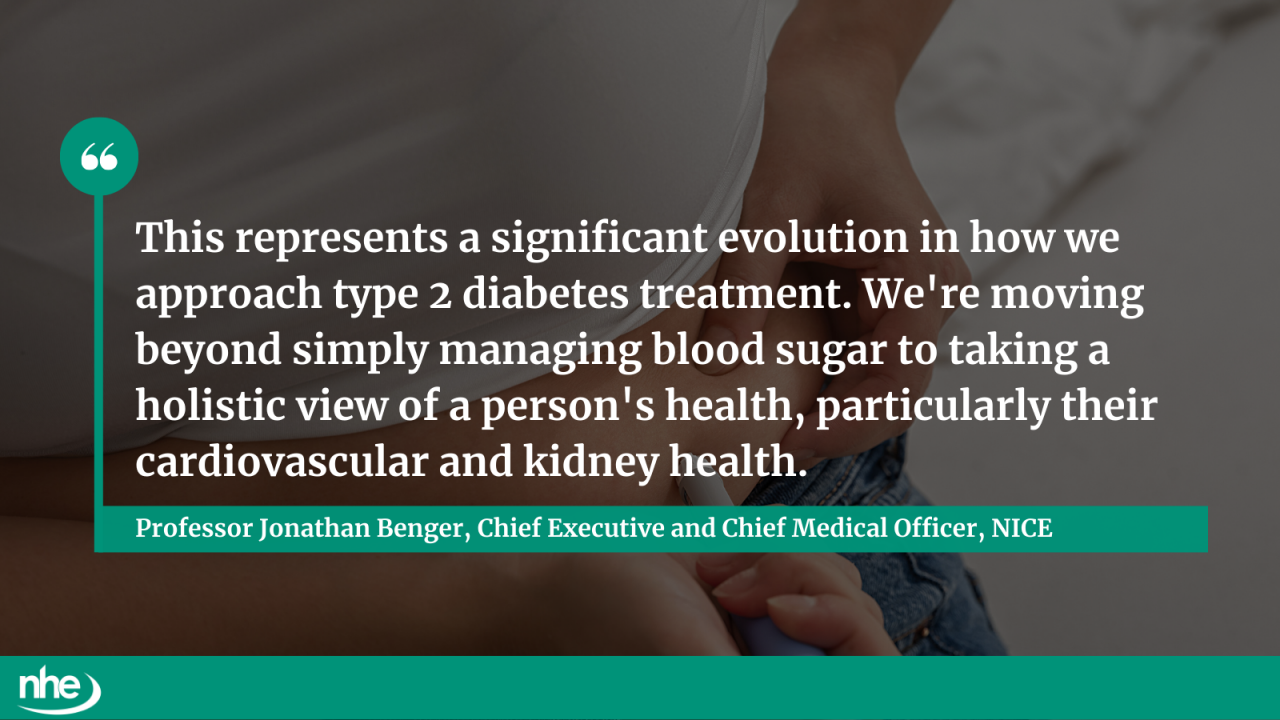Millions of people living with type 2 diabetes in England are set to benefit from earlier access to newer treatments, following the release of draft guidelines from NICE – marking the most significant change in diabetes care in over a decade.
The new guidance moves away from a ‘one-size-fits-all’ approach, recommending personalised treatment plans that aim to prevent serious complications such as heart failure, heart attacks, and kidney disease. This shift supports the NHS’s 10-Year Health Plan, which prioritises prevention and equitable access to care.
NICE’s independent guideline committee now recommends SGLT-2 inhibitors, including canagliflozin, dapagliflozin, empagliflozin, and ertugliflozin, as first-line treatments, rather than second-choice options. Additionally, GLP-1 receptor agonists like liraglutide and semaglutide may be offered earlier to specific patient groups.
For patients unable to tolerate metformin, the traditional first-line medicine, the new guidelines suggest starting with an SGLT-2 inhibitor alone due to its cardio-renal protective benefits. Evidence suggests that implementing these changes could save up to 22,000 lives once uptake reaches 90%.
The draft guideline also addresses under-prescribing of SGLT-2 inhibitors, particularly among women, older adults, and Black or Black British individuals, based on analysis of nearly 590,000 patient records.
Treatment recommendations are now tailored to individual needs:
- People with cardiovascular disease should receive triple therapy, including a GLP-1 receptor agonist.
- Those diagnosed before age 40 will be offered dual therapy earlier.
- Patients with obesity or chronic kidney disease will receive specific combinations based on their health status.
- Adults with frailty may begin with metformin alone.
Professor Jonathan Benger, NICE’s Chief Executive and Chief Medical Officer, said:
“These draft recommendations demonstrate how NICE is already delivering on commitments within the 10-year plan by updating guidance to drive smarter NHS spending. This guidance means more people will be offered medicines where it is right to do so to reduce their future risk of ill health.
“This represents a significant evolution in how we approach type 2 diabetes treatment. We're moving beyond simply managing blood sugar to taking a holistic view of a person's health, particularly their cardiovascular and kidney health.
"The evidence shows that certain medicines can provide important cardiovascular benefits, and by recommending them as part of initial treatment, we could help prevent heart attacks, strokes and other serious complications before they occur. This is particularly important given that cardiovascular disease is the leading cause of death in people with type 2 diabetes.”

The guidelines also support the rollout of digital care tools, such as continuous glucose monitoring, and promote community-based care delivery to improve access and outcomes.
With 4.6 million people diagnosed with diabetes in the UK, NICE’s proposals represent a critical step toward modernising diabetes care and reducing long-term complications.
The draft guideline is open for public consultation until Thursday, 2 October 2025, with final recommendations to follow.
Image credit: iStock



















